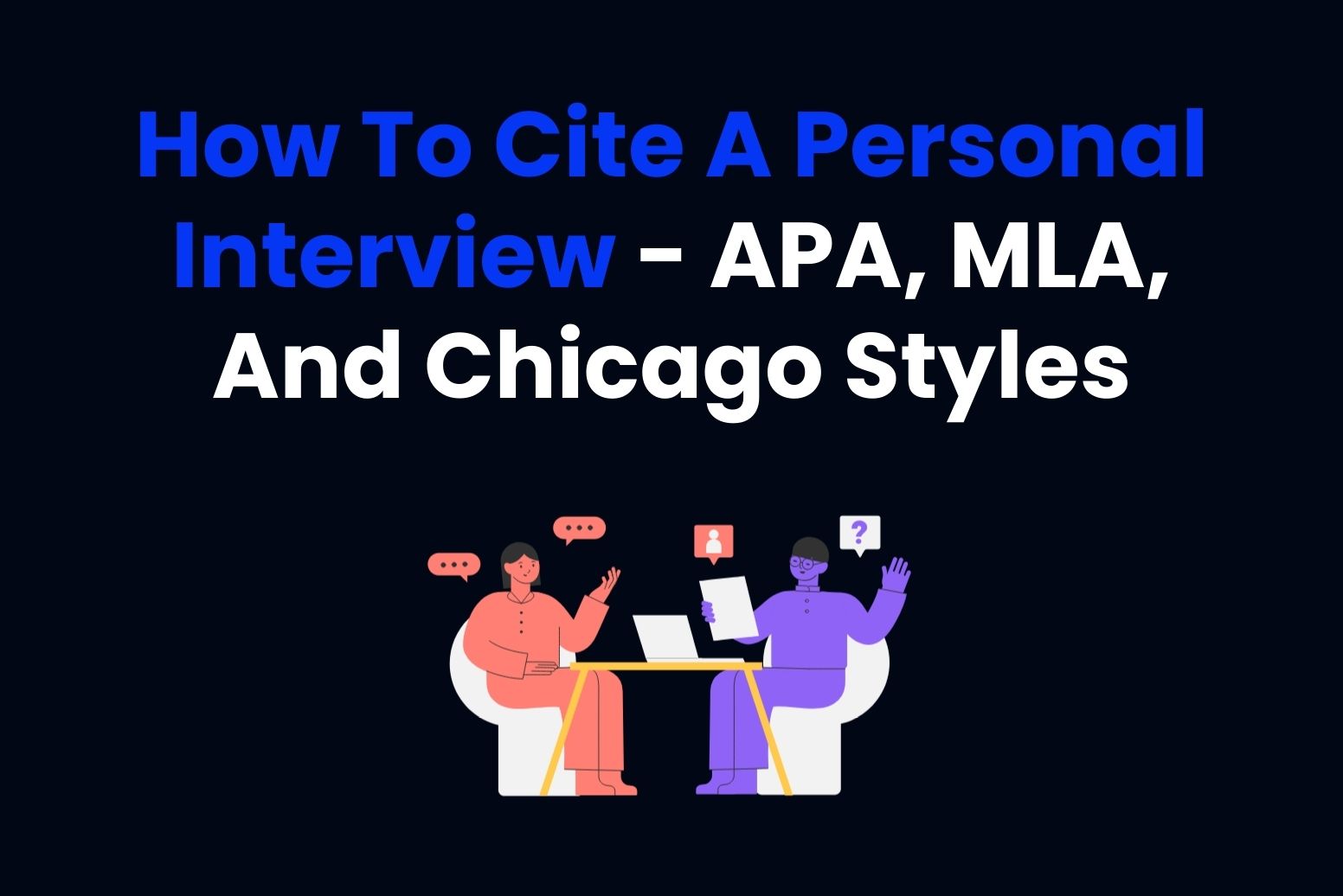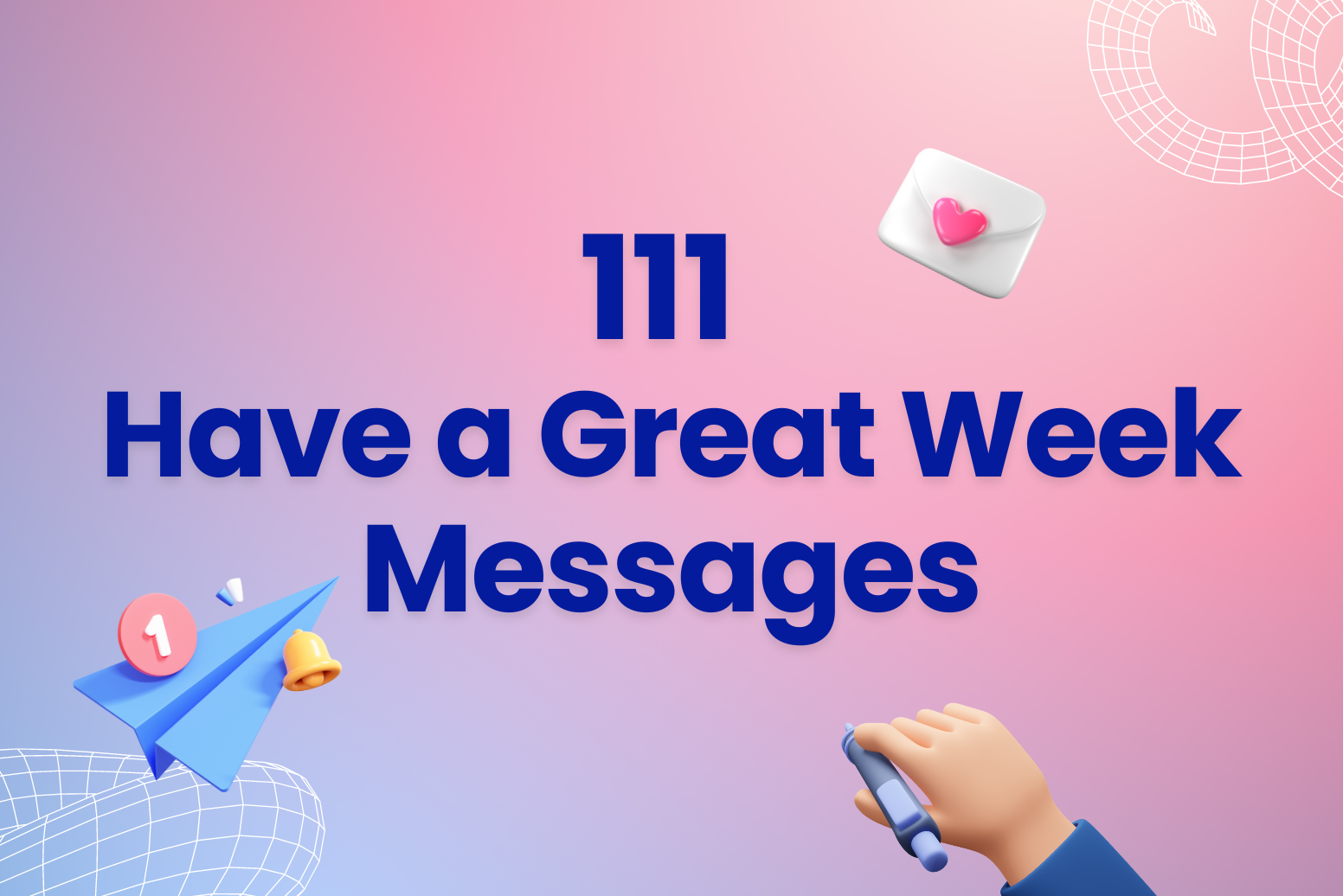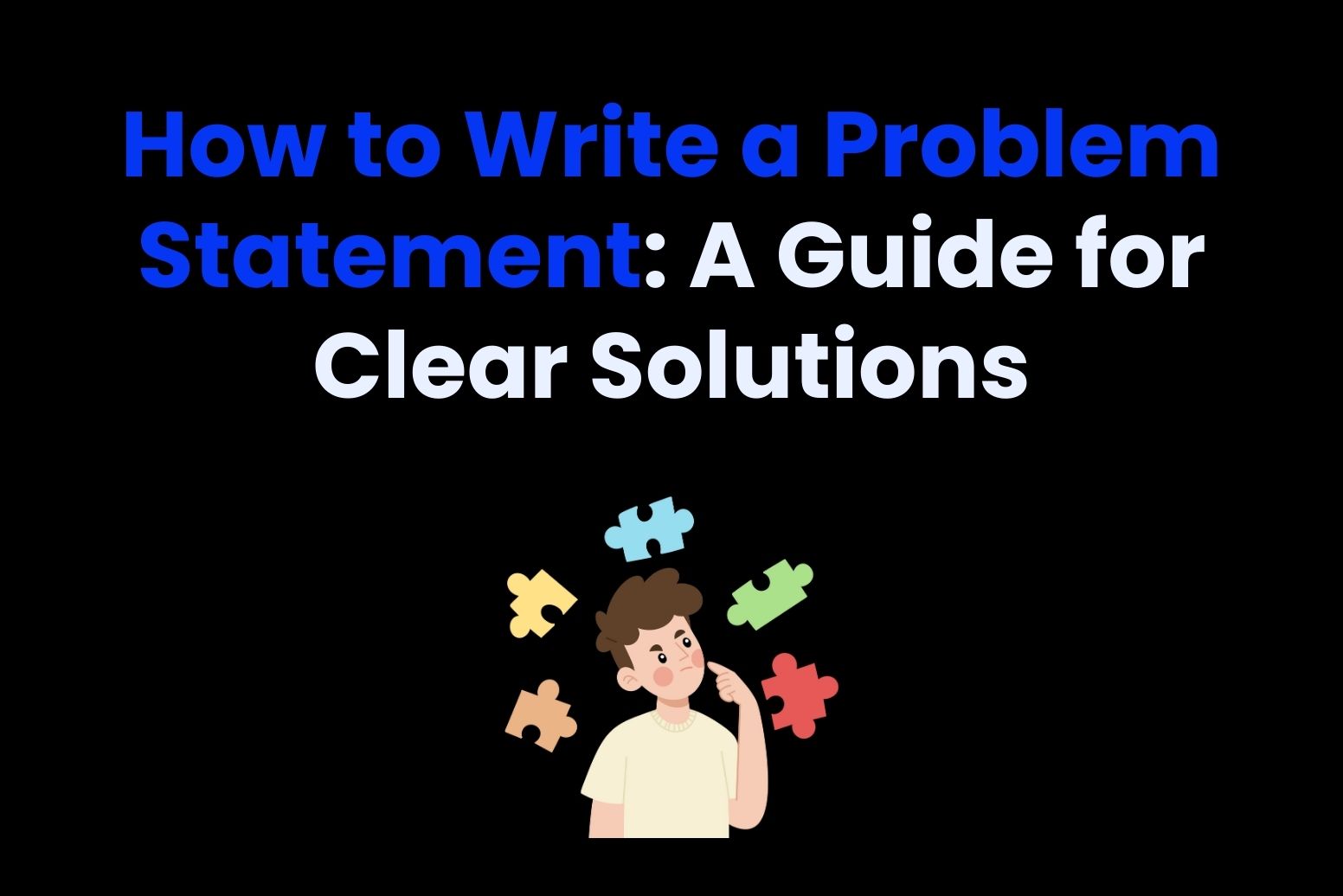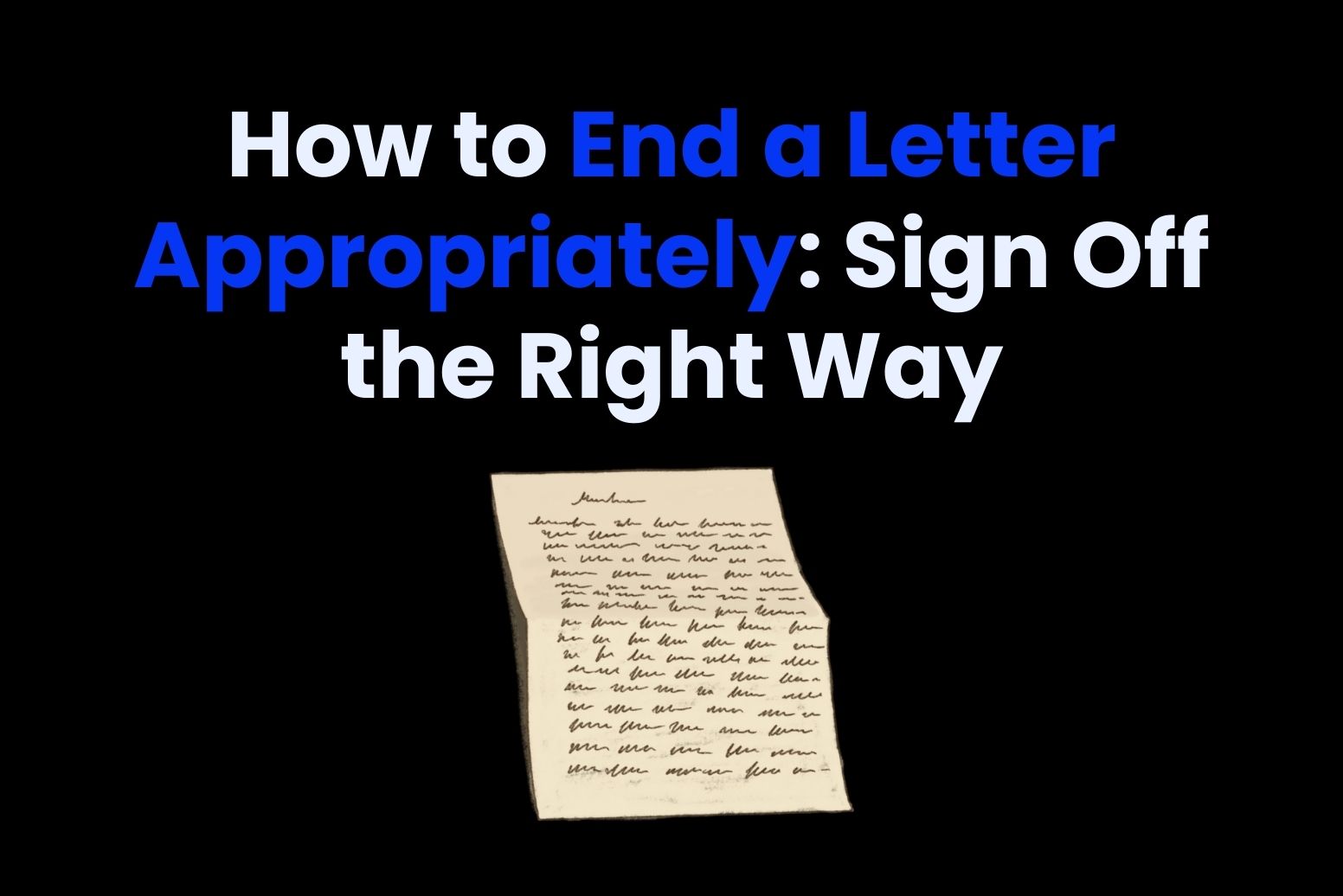Ever had a conversation so good you thought, This deserves to be in a paper or article? But then, reality hits: How on earth do I cite this without messing it up? But fear not! One aspect you don’t have to worry about is how to cite a personal interview.
Sure, it sounds like a chore, but once you’ve got the hang of it, it’s pretty simple. This guide will show you how to cite a personal interview in a way that’s as easy as pie, no matter if you’re using APA, MLA, or Chicago style. Let’s make this process simple for you!

What Is A Personal Interview?
Before discussing citations, let’s clarify what a personal interview is. Essentially, it is a one-on-one conversation between you (the interviewer) and someone else (the interviewee) to gather information. Personal interviews are conversations where someone shares their expertise, experience, or personal perspective just for you (lucky you!).
These interviews can come in all shapes and sizes, but here are a few common types:
In-person chats:
In-person chats are the classic one-on-one, face-to-face style. You’re sitting across from each other, maybe sipping coffee, gathering wisdom.
Phone interviews:
Phone interviews are perfect for those moments when you want to connect with someone but without leaving your house. You can still dive deep into the conversation, even if you’re both in different time zones.
Email exchanges:
Email exchanges are the modern-day approach. Ask thoughtful questions, give your interviewee time to craft their answers, and voilà! You’ve got yourself an interview. This is perfect when there are availability issues, and everyone can work at their own pace.
These interviews provide the kind of original content that makes your writing stand out from the crowd. But no matter what form your interview takes, you’ll need to cite it properly to give credit where credit’s due.
Why Bother Citing A Personal Interview?
You might be thinking, “Do I really need to cite an interview? I mean, it’s not like anyone can read the interview for themselves, right?” Well, the answer is yes and no. Here’s the thing: Citing a personal interview isn’t just about following the rules; it’s about making sure your readers know where you’re getting your info. Let’s break it down:
Ethical Considerations:
Citing your sources is about academic integrity. If you’re quoting someone’s thoughts or ideas, you’ve got to show where they came from. If you don’t properly acknowledge where your information comes from, you run the risk of plagiarism.
Credibility:
Personal interviews often provide rare insights or firsthand information that is not available from other sources. This gives your work a unique edge because they’re packed with insights that can’t be found anywhere else. When you cite them properly, it adds weight to your argument and shows you did your homework.
Transparency:
Your readers aren’t mind readers, so they can’t magically know where your info came from. Citing interviews clearly lets them know, “Hey, I got this from a real conversation with someone who knows what they’re talking about!”
So, next time you include an interview in your research, remember that citing it properly is not only a best practice but a sign of respect to the source and your readers.

What To Know Before Citing Your Interview
Before you even think about how to cite a personal interview, it’s important to make sure you’ve got all the details locked down. Here’s what you need:
- Name of Your Interviewee: Make sure you’ve got the full name of the person you interviewed, and make sure you got their spellings right!
- Date of the Interview: This one’s super important. When did the interview take place? That info will help your readers put the conversation in context.
- How Did You Interview Them?: Was it a face-to-face chat, a phone call, or a series of email exchanges? This matters because different citation styles handle these formats differently.
- Context: Was it a casual conversation? Or did you have a formal interview for research? Knowing this helps you provide some clarity about the conversation’s tone and purpose.
How To Cite A Personal Interview In Different Citation Styles
Now that you’ve collected all the relevant details, it’s time to format the citation according to the required style. Each citation style has its own rules for citing personal interviews, so let’s dive into how to cite them in APA, MLA, and Chicago styles.
APA Style
In APA style, personal interviews are considered personal communications and do not appear in the reference list. Instead, you cite them only in-text. Here’s how to do it:
In-Text Citation Format:
(First Initial. Last Name, personal communication, Date of Interview)
Example:
(C. Matthews, personal communication, January 1, 2025)
In APA, personal interviews are considered non-recoverable sources, which means your readers can’t access the interview themselves. This is why you don’t need to include it in your reference list.

MLA Style
MLA citation style is commonly used in the humanities, and it takes a slightly different approach. Unlike APA, MLA requires you to include personal interviews in your works cited list. Here’s how you can format it:
Works Cited Entry Format:
Last Name, First Name. Personal interview. Day Month Year of Interview.
Example:
Matthews, Celina. Personal interview. 1 Jan. 2025.
In-Text Citation Format:
(Matthews)
This format is fairly straightforward, and you’ll include the date and a brief mention of the interview in the in-text citation.
Chicago Style
Chicago style is a bit more flexible, and it offers two systems for citation: Notes and Bibliography and Author-Date. Personal interviews are most commonly cited in Notes and Bibliography style, using footnotes or endnotes. Here’s how to cite a personal interview in Chicago style:
Footnote Citation Format:
First Name and Last Name, interview by Author’s First and Last Name, Date of Interview.
Example:
Celina Matthews, interview by author, January 1, 2025.
For a Bibliography entry, the format is similar:
Bibliography Entry Format:
Last Name, First Name. Interview by Author’s First and Last Name. Date of Interview.
Example:
Matthews, Celina. Interview by author. January 1, 2025.
Let’s see a practical example of how to cite a personal interview from Arvin AI for better understanding:
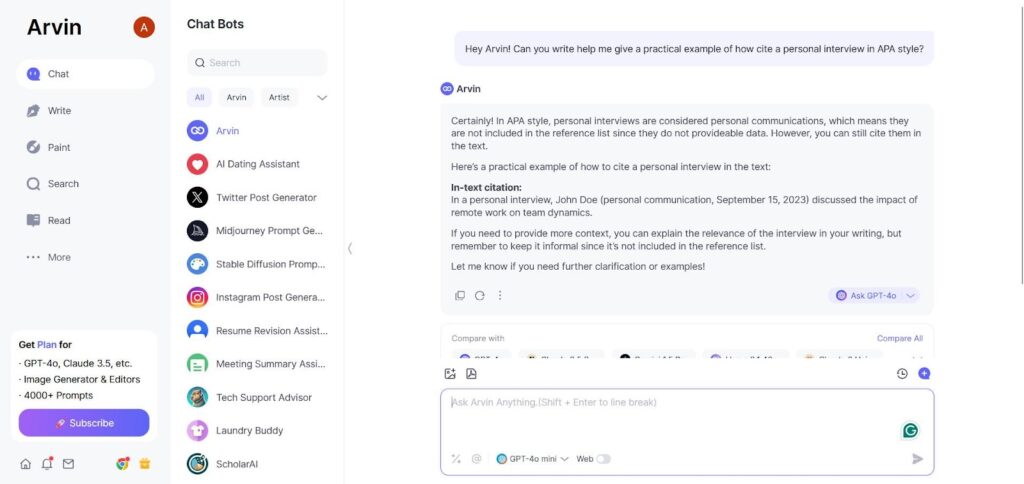
Additionally, you can also provide your own information to Arvin AI and ask him to cite it for you. Easy, no? (Pro tip: Arvin AI can also write winter Instagram captions for you or help you write love poems for her, just name it!)
Common Mistakes To Avoid When Citing A Personal Interview
Citing a personal interview can be tricky, so it’s important to watch out for these common mistakes:
- Not Using The Correct Format: Double-check your style guide to make sure you’re following the rules for citing personal interviews in your specific citation style.
- Placing Interviews in the Reference List (in APA): Remember, in APA, personal interviews are not included in the reference list. They are only cited in-text.
- Missing Key Details: Don’t forget to include all the critical information, such as the interviewee’s full name, the date, and the method of communication.
- Confusing Multiple Interviews: If you’ve conducted multiple interviews with the same person, it is equally important to make sure to distinguish them by date (e.g., Matthews, personal communication, January 1, 2025, and Matthews, personal communication, February 15, 2025).

FAQS About How To Cite A Personal Interview
Here are a few of the most frequently asked questions about how to cite a personal interview:
- Do I need permission to cite a personal interview?
Although, you don’t always need formal permission to cite a personal interview, especially in academic or creative contexts. However, it’s both polite and professional to ask for permission. This is particularly important if the information shared is sensitive, confidential, or might reflect on the person in a public way.
- How do I cite an email interview?
Citing an email interview is straightforward and follows the same general format as any personal interview. However, the only difference here is that you’ll specify the format (e.g., email). For example:
- In APA: Include it as personal communication in the text only (C. Matthews, personal communication, via email, January 1, 2025).
- In MLA: Include it in the Works Cited list:
Matthews, Celina. Email interview. 1 Jan. 2025. - In Chicago: Mention the format in your notes section:
- Celina Matthews, email message to author, January 1, 2025.
- Can I cite an anonymous interviewee?
Yes, you can! When citing an anonymous interviewee, you can use a general description instead of their name. For example, you might refer to them as “Anonymous,” “Industry Expert,” or “Participant A,” depending on the context.
Take Home Message
And there you have it, everything you need to know about how to cite a personal interview. It’s not as scary as it sounds, right? Now, whether you’re working on a research paper, a blog, or just trying to look super polished in your work, you can confidently cite your interviews like a total pro.
Remember, giving credit to your sources isn’t just about following rules but also about showing respect for the knowledge they’ve shared with you. Plus, it keeps your work honest and transparent which is something we could all use a little more of. So, take a deep breath, double-check your citations using Arvin AI, and keep creating. You’ve got this!



